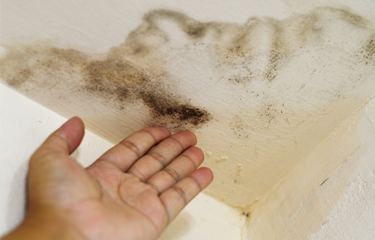
What An Agent Can Ask From His Buyers
April 20, 2016
Investment Property – Leveraging Rental Property Equity
April 23, 2016
The most important three factors are: location, location and location
It’s one of our biggest investments and some of us are doing it more than once during our life. Like many things in our life that have changed dramatically, so did our habitation practices. Most of us don’t stay in one house for the full duration of our lives as it used to be for many people in previous generations.
Our modern dynamic life style and economy, calls for flexibility, mobility and frequent changes, People are following their jobs and careers even if it means moving from one side of the nation to the other.
This tendency is in line with our culture of consuming society. We replace everything faster, we treat cloths, cars (some just lease), refrigerators and our dwellings like fashion items with short longevity. We decide to buy a house we need to think in terms of sort to medium range periods of time and that should bring us to consider the resale value of our home in the future.
Buying a home with good resale value might take a little longer, and it might take a bit more work on your part, but you’ll love the payback later, when it sells quickly and puts extra money in your bank account.
The first consideration should be your family needs but it’s cleaver to keep an open mind about what might suite future buyers as well.
The most important three factors are: location, location and location… Indeed, it’s first thing to consider when looking for a home. So, what makes a good location?
There are some general elements which are obvious like:
-
- Does the neighborhood have easy and fast access to the schools, shopping centers and country club.
-
- It’s wise to pick a house that is located relatively elevated above the area, that can provide two advantages: a flow of good air and a nicer view.
-
- How many neighbors are adjacent to you and/or across you in proximity, off course the less the better.
-
- A house located at the end of the street will suffer less noises from the neighbors and their guests. If the street is a dead end it’s even better. A corner house may have more light and air.
-
- The positioning of the house towards the north if it’s a warm area as opposed to the south in cold areas. In general, a rule of thumb and this one is general and found right to many locations around the world, as strange as it may sound, the northern neighborhoods are usually more desirable than the southern ones exactly as the western ones are more prestigious than the eastern ones.
-
- The size of the lot, its shape and the square footage of the house itself. If the majority of buyers in your area are young families with children, consider a house with a large yard that’s not fronted by a busy street.
- There are many other environmental aspects to consider with respect to personal preference like a green agricultural area vs. urban area, quality of schools and other social services and facilities.
In addition to these external considerations there are many important internal elements that can make a house quality higher and buyers are always looking for, such as:
-
- Closets, lots of closets and with as much additional storage space as possible.
-
- Light and bright – Homes with lots of natural lighting are very popular.
-
- Split bedroom plans, with bedrooms on each end of the home, are increasingly popular with buyers.
-
- If you live in a scenic area, having a view can help you sell.
-
- Plenty of bedrooms, bathrooms.
-
- Large and convenient kitchen with as many cabinets and cooking space as possible.
-
- The tendency to work from home calls for a suitable room to be set as a home office.
-
- Laundry and dryer machines located at the same level as the bad rooms.
- A spacious basement is a plus.
Features to avoid
-
- One-bath homes sell for significantly less than homes with at least two baths and they take longer to sell.
-
- Electric baseboard heat and electric ceiling heat are not as desirable as central heating systems. A fireplace in the living room is a plus.
-
- Tubs and showers in outdated colors, or scratched from years of improper cleaning, might be hard to change without ripping out doors or walls.
- Popcorn ceilings date a house, you know, those bumpy ceilings that were so popular in the 1970’s.
Your first objective is to buy a home that’s right for you, but do consider its resale value before you make the final decision, especially if you know you’ll move again within three to five years. A careful purchase now will help give you extra funds to move up with the next time you buy a home.
Home Inspections
Depending on the type of financing you choose, there should be either 2 or 3 separate inspections on the home you want to purchase. The first should be your own basic inspection (see the bottom of this page for what to look for), the second should be a professional whole-house inspection by a reputable person. Should you select a government loan (FHA or VA), the third inspection should come at the time of the appraisal, which to some degree amounts to a “mini-inspection.” Do not, however, rely on this appraisal as your only inspection of the property!
We cannot emphasize enough the value and necessity of an extensive home inspection. Many home purchasers, either in the desire to save the $200 to $500 that a good inspection costs, or due to simple ignorance, have spent enormous sums of money repairing items that any good home inspector would have pointed out. Any offer to purchase you make should be contingent upon (subject to) a whole house inspection with a satisfactory report. Do not let anyone not the agent, not your family or friends, and especially not the seller, dissuade you from having the property thoroughly inspected! Not only will you sleep much sounder after you have moved into the house, a professional inspection can give you an escape hatch from a contract on a defective house. If the contract is written contingent on an acceptable inspection, any defects in the home must be either repaired or monetarily compensated for.
If you are not satisfied, you have the option to cancel the contract.




